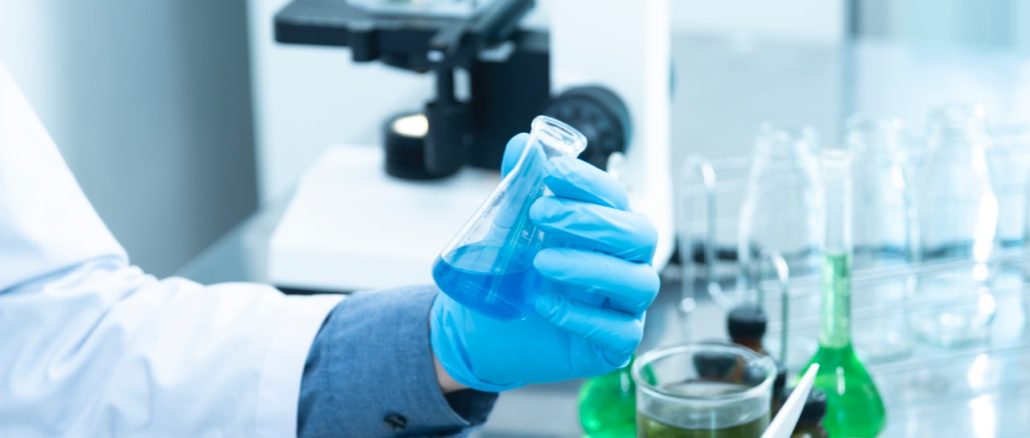
Ms Shoni Mulibane
Following a lot of backlash regarding the “testing” of vaccines in Africa, we thought we should get a better understanding of the processes involved in these testing and how vaccines and medicines are developed for human consumption.
Modern medicine has evolved from processes where medicines were made from plants and animals. These days most medicines are produced through chemical processes where scientists conduct research, study and test chemicals in plants and animals that are then used to produce medicines. Medicines includes medicines that are used to treat diseases, prevent diseases (e.g. vaccines) and medicines that are used in special investigations (such as medicines used during special X-ray examinations).
Any medicine that becomes available for human consumption undergoes clinical trials. This is a research or study, or investigation intended to test safety, quality, effectiveness and efficacy of a new and/or existing or old medicines, medical devices and/or treatment options using human participants. New medicines or devices are studied in great detail over a long period, in the laboratory and in various animals to establish initial safety and effectiveness. Trials or testing of medicines or medical devices in people only takes place after they have been tested thoroughly in the laboratory on animal studies. Under normal circumstances it could take 10 to 15 years to produce any medicine. During a pandemic situation, the drug development process can be fast tracked to respond quickly to the pandemic, but scientists usually want to take a more cautious route to avoid a bad vaccine or product to enter the market that could lead to serious health problems or have a vaccine that is not effective. As such drug development process is designed to be deliberate, peer-reviewed, evidence based and reflective. In the case of COVID-19 pandemic, vaccine development has been fast tracked as this is not the first Coronavirus outbreak. The genetic code for SARS-CoV2 virus was modelled on other vaccines for influenza and Zika that already exists. It is for this reason that vaccine trials have started in the US and in China.
Any company that wishes to develop any medicine and conduct clinical trials, they must apply for approval to conduct clinical trials with a regulatory authority. Many countries have their own Medicine Regulatory Authorities. In the United States, they have the US Food and Drug Administration (FDA), in Europe it is called European Medicines Agency. China’s equivalent is the National Medical Products Administration, also known as China Food and Drug Administration. The South African regulatory authority is called South African Health Products Regulatory Authority (SAHPRA). As part of the international pact to make trial information publicly available, South Africa keeps a register of all clinical trials conducted in the country in the South African National Clinical Trials Register. All the information on clinical trials on human participants being conducted in South Africa is available on this register, with information on the purpose of the trials, who can participate, where the trial is conducted and their contact details. This is also pushed from the World Health Organisation by providing a Clinical Trials Register platform. This platform provides for better coordination and promotes collaboration among researchers, the private sector and the community through sharing of information. This also reduces duplication of effort as the platform promotes best use of limited research resources.
Clinical trials or testing of drugs follows four phases:
Phase I: a new drug, vaccine or medical device is tested in a small group of usually healthy people for the first time to test if the medicine or vaccine is safe, to determine the correct dosage and possible negative or undesirable effects of the new medicine.
Phase II: the drug, vaccine or medical device is tested in a larger group which could be a several hundred people. At this stage people with the disease are also given an opportunity to participate in testing the drug to test the safety and effectiveness of the new drug, vaccine or medical device. In a case of vaccines, the trial examines how well the vaccine works in creating an immune response.
Phase III: the new drug, vaccine or medical device is tested in a larger group of several hundreds to thousand of people who suffer from the disease for which the drug, vaccine or medical device is intended. The effectiveness and possible side effects are evaluated in more depth during this phase. The new drug can also be compared with existing drugs for alternative treatment options. In a case of vaccine, this phase depends on the virus remaining active long enough for the participants to be exposed to it.
Phase IV: This is the phase where clinical trials are done after the drug is registered and licensed for sale. The drug is tested on several thousand people to define its safety, effectiveness and long-term undesirable effects. During this phase, the drug is also tested in certain high-risk sectors of population like children, elderly, people with liver and kidney diseases. It also possible to find new uses for the drug in this phase.
All participants in clinical trials are closely monitored and assessed for possible side effects or adverse events.
Ms Shoni Mulibane is a Pharmacy Manager at Right to Care and a member of TEASA Health Commission